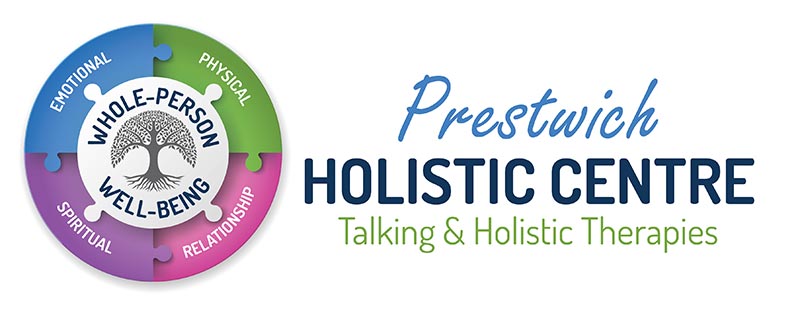
CBT in Manchester
Anxious? People are under more stress than ever today. With the COVID pandemic, anxiety levels are on the increase. Concern about the future, worries about finances and the strain of on/off lockdowns are taking their toll on even the most stalwart individuals. More people are looking for anxiety counselling and benefiting from CBT therapy in Manchester.
Even ongoing anxiety about the safety of you and your family, the fear of catching coronavirus is becoming a heavy burden.
If you feel this way, there is no reason to feel you are alone or weak.
At Prestwich Holistic Centre, we offer a range of therapies to help you cope with your anxieties. If you want to find a CBT therapist in Manchester, please contact us today, without obligation.
What is CBT?
Cognitive behavioural therapy (CBT) is a talking therapy designed for you to enable you to manage anxieties and problems. It does this by helping you change the way you think (Cognitive) and behave (Behaviour).
When we’re feeling low or upset, most of us find our thinking and behaviour are affected. This is normal. But sometimes our responses cause deeper problems, such as panic attacks or deep anxiety. Our CBT therapists can help identify thinking or behaviour patterns that cause these problems, and adjust them so you can feel better.
Unlike some other therapies, CBT does not look back but concentrates on the present and the future. By focussing on your thoughts and your behaviour, you can learn why some may affect you negatively.
Our experienced therapists will help you identify practical ways to address your anxieties or problems. As part of the process, you work together with the therapist to successfully reach mutually agreed goals.
Most people associate CBT with anxiety or depression. But the therapy can be useful for other health problems, mental and physical.
What can CBT in Manchester do?
There is a wealth of research about CBT and it is recognised by the National Institute of Health and Clinical Excellence (NICE).
It is an effective form of treatment for specific difficulties such as chronic worry, anxiety, stress, OCD, anger issues, low self-esteem, phobias, low mood, social anxiety, and post-traumatic stress disorder. CBT can also help people with a variety of mental issues, even sleeping disorders and phobias.
In addition, CBT can help people with certain long-term health conditions. These include chronic fatigue syndrome (CFS) and irritable bowel syndrome (IBS). CBT can't cure the physical symptoms of such conditions but the therapy can help sufferers cope with their symptoms.
Circumstances and people vary. Whether you suffer from anxiety, mental or physical issues, please contact us to see if CBT is a practical way to assist you.
How does CBT work?
As shown above, CBT works on the basis that your thoughts, feelings and behaviour are linked. It recognises that the thoughts and feelings brought on by certain situations can hold you in a cycle of negative responses.
CBT aims to enable you as an individual to deal with and curb such negative responses. The therapist will help you break down what may appear to be overwhelming problems into smaller parts. In doing so, you learn how to cope with these smaller parts in a way that changes your current negative response. This will quickly improve the way you feel.
How is this done? Our therapist will encourage you to discuss your thoughts and feelings, as well as how they affect what is troubling you. Many of us find it hard to open up about our feelings but you will soon find the therapist can help you gain the confidence to do so.
Typically, CBT focuses on specific problems. By using a goal-oriented approach, you can monitor your improvement. For example, when you are ready, the therapist may suggest you do 'homework'. This may be an activity that builds on what you have discussed and learned during your sessions.
Your therapist will agree on these activities with you. The goal is to encourage you and never push you. As you succeed with each step and see your progress, you will gain more confidence to take the next step.

How do sessions work?
As mentioned above, CBT is goal-oriented, so you and your therapist will establish what areas to work on. Your problems will be broken down into smaller, more manageable parts. This will enable you both to analyse how your thoughts, feelings and behaviours affect each other and your behaviour.
From this, goals can be set to enable you to face your problems, one step at a time. This may require facing uncomfortable thoughts and unhelpful behaviours. Once you have agreed to each step, you will be asked to practice it in your daily life. This will be the ‘homework’ mentioned above, set by the therapist. At your next session, you will discuss the success – or any difficulties you faced – during the ‘homework’.
Through these sessions and, the progress you make, you will be helped to manage your problems and stop them causing negative behaviour. The goal is that this positive behaviour will continue after the sessions finish.
How long does CBT Therapy take?
Each person is an individual – and that includes you! And each person’s challenges – including yours - are unique.
CBT is generally considered a short-term therapy and may consist of, perhaps, five to 20 sessions, although this may be longer. However, your therapist will discuss how many sessions you need to have the best success for you. And that will depend on the problem you face and your circumstances.
We're here to help
If you are looking for private CBT (Cognitive Behavourial Therapy) in the Prestwich or Manchester area, please contact us in strict confidence:
